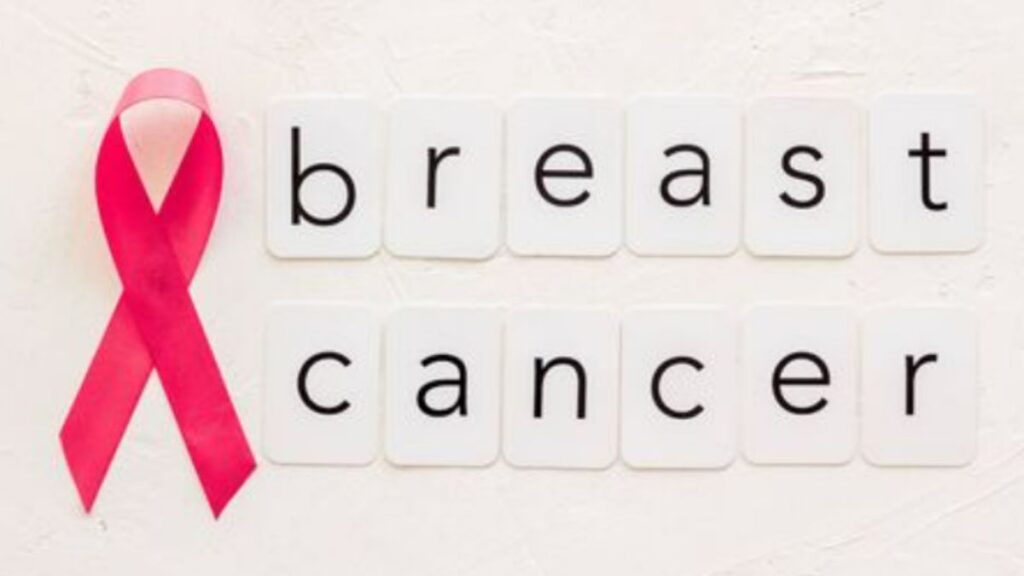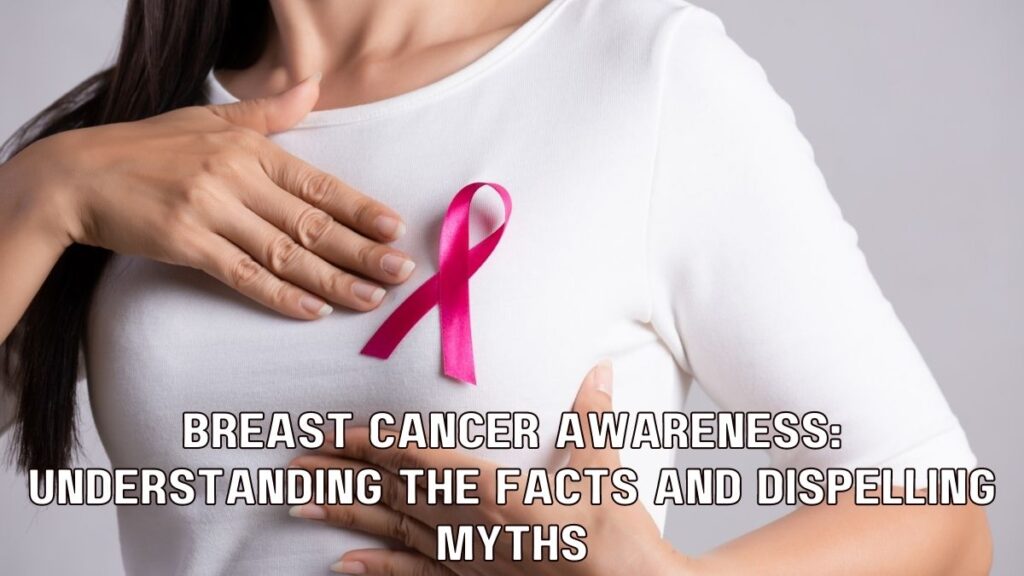Breast cancer is a topic that affects millions of lives worldwide. It’s a disease that can strike fear into the hearts of many, but knowledge and awareness are powerful tools that can help save lives. In this blog post, we’ll dive into the facts about breast cancer and debunk some common myths to provide you with accurate information and promote awareness.
Facts About Breast Cancer:
- Incidence and Prevalence: Breast cancer is the most common cancer diagnosed in women globally. It also affects men, although at a much lower rate. Early detection is key to improving survival rates.
- Risk Factors: While the exact cause of breast cancer is not fully understood, certain risk factors can increase the likelihood of developing it. These include age, gender, family history, certain genetic mutations (like BRCA1 and BRCA2), hormonal factors, obesity, and more.
- Screening and Early Detection: Regular screening, including mammograms, clinical breast exams, and self-breast exams, is crucial for early detection. The earlier breast cancer is detected, the higher the chances of successful treatment.
- Types of Breast Cancer: There are different types of breast cancer, including ductal carcinoma in situ (DCIS), invasive ductal carcinoma, invasive lobular carcinoma, and others. Treatment plans can vary based on the type and stage of cancer.
- Treatment Options: Treatments for breast cancer can include surgery, radiation therapy, chemotherapy, targeted therapy, and hormonal therapy. The treatment plan is personalized for each individual based on various factors.

Dispelling Myths:
- Myth: Only Women Are Affected by Breast Cancer: While breast cancer is more common in women, men can also develop it. The disease in men often goes undiagnosed or diagnosed at a later stage due to the misconception that it only affects women.
- Myth: Only Older Women Get Breast Cancer: While the risk of breast cancer increases with age, it can occur in younger women as well. Regular screening is important for all age groups.
- Myth: If You Have a Family History, You Will Definitely Get Breast Cancer: While having a family history of breast cancer increases your risk, it doesn’t guarantee you will develop the disease. Many people with a family history never develop breast cancer, and many who do have no family history.
- Myth: Finding a Lump Means You Have Breast Cancer: Not all breast lumps are cancerous. Many lumps are benign (non-cancerous). It’s important to consult a healthcare professional to determine the nature of the lump.
- Myth: Deodorants and Bras Cause Breast Cancer: There is no scientific evidence to support the claims that using deodorants or wearing bras increases the risk of breast cancer.
Promoting Awareness and Action:
Breast cancer awareness goes beyond wearing pink ribbons in October. Here are some ways you can promote awareness and contribute to the cause:
- Regular Screening: Encourage women and men to schedule regular screenings and mammograms, especially if they fall into higher risk categories.
- Educate: Share accurate information about breast cancer and dispel myths in your social circles. The more people understand the disease, the better they can make informed decisions about their health.
- Support and Fundraising: Participate in or organize fundraisers to support breast cancer research, patient support programs, and access to treatments.
- Healthy Lifestyle: Promote a healthy lifestyle, as factors like obesity, smoking, and excessive alcohol consumption can increase the risk of breast cancer.
In conclusion, breast cancer awareness is not just about wearing pink; it’s about understanding the disease, debunking myths, and taking action to promote early detection and better outcomes. By spreading accurate information and encouraging regular screenings, we can make a positive impact in the fight against breast cancer.

